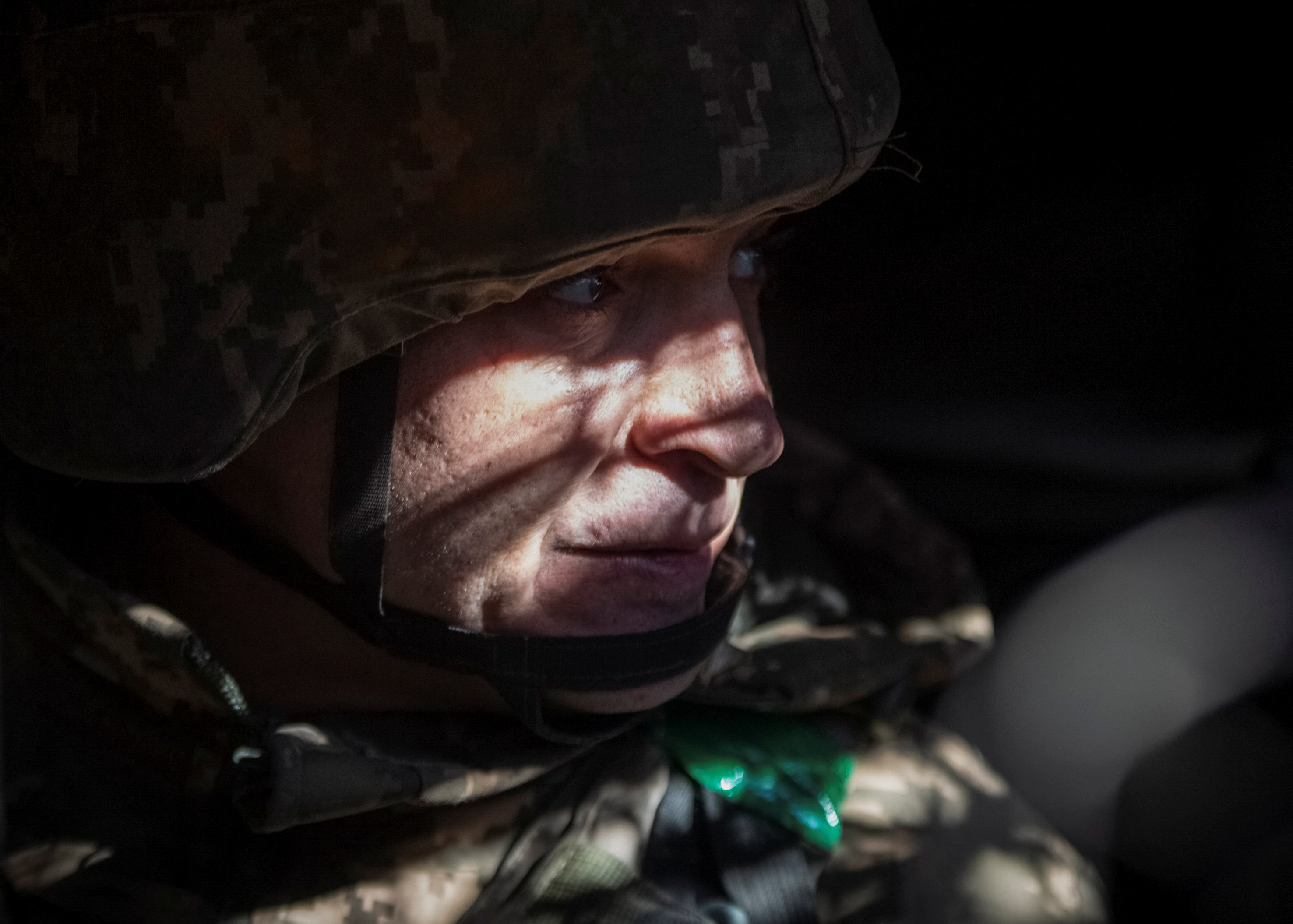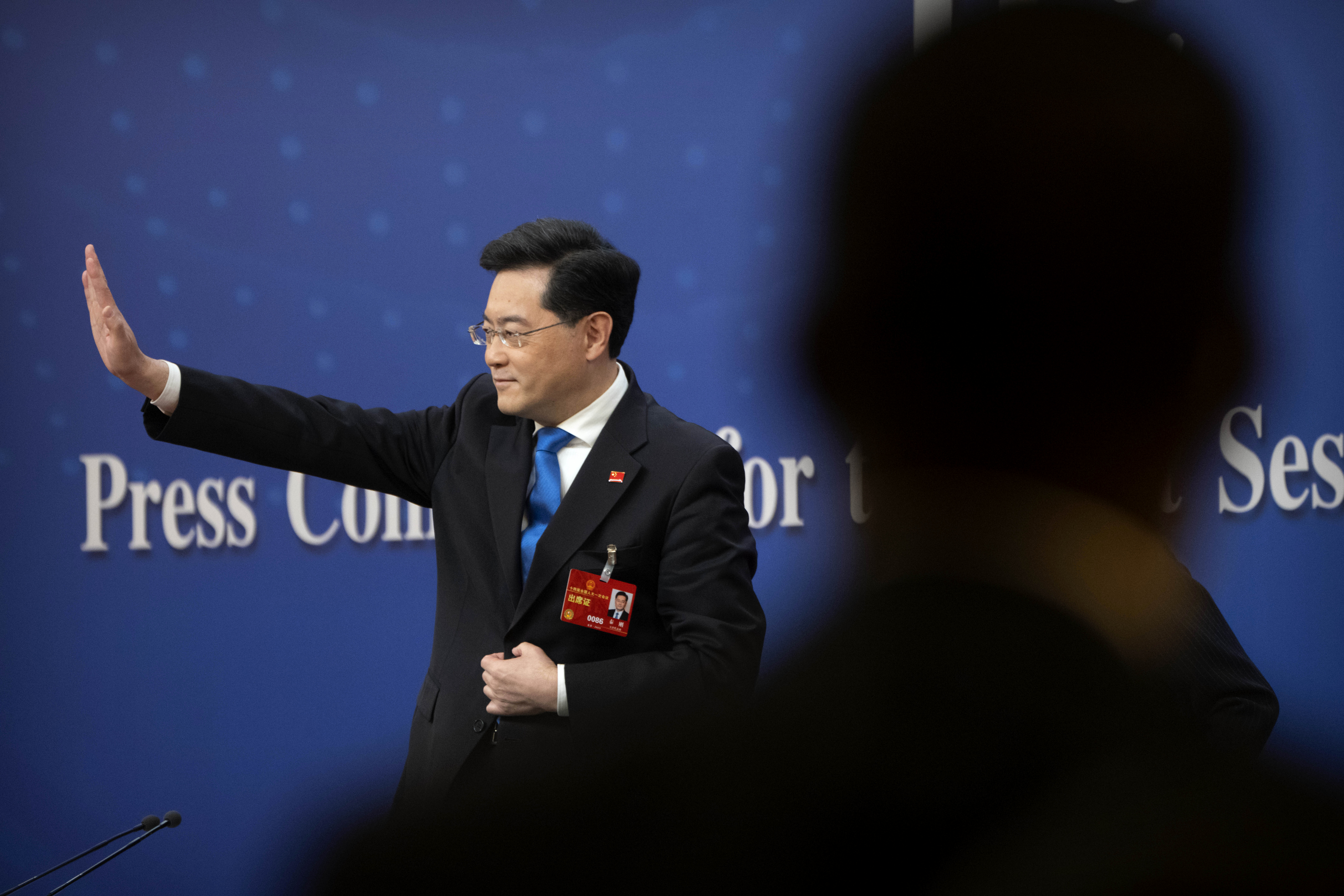
President Volodymyr Zelenskyy said Ukraine’s top military command had pledged to continue defending the eastern town of Bakhmut while Russian forces attempted to tighten the siege and secure their first major battlefield achievement in more than six months.
Now for all the fight in Bahamut
Zelenskiy said he had discussed Bakhmut with the chief of staff and the commander of the ground forces, who backed “the continuation of the defensive operation” in the contested city.
Meanwhile, the Ukrainian commander in Bakhmut, Volodymyr Nazarenko, said that there was no order to retreat and “the defense is holding up”, albeit in “hellish” conditions.
Less than a week ago, an adviser to the President of Ukraine said that the defenders could leave Bakhmut and retreat to nearby positions.
However, Zelensky held a meeting on Monday at which senior military officials “spoke in favor of continuing the defensive operation and further strengthening our positions in Bakhmut”, “so as not to retreat” and strengthen the defense capability of Ukraine.
Zelensky’s chief adviser, Mykhailo Podolyak, told The Associated Press that Ukrainian forces around Bakhmut are destroying enemy troops, fortifying their positions and preparing tens of thousands of Ukrainian troops for a possible counteroffensive.
Russian troops were unable to deliver the final blow, which would have allowed them to capture Bakhmut. Analysts say the city is of little strategic importance and that its capture is unlikely to be a turning point in the conflict and rather symbolic for the Russians.

Michael Coffman, director of Russian studies at the CAN think tank in Arlington, Va., said the Ukrainian defense of Bakhmut had been effective because it had drained Russia’s military effort, but now Kiev must look ahead. “The stubborn defense of Bahamut made it possible to achieve a lot by spending Russian forces and ammunition,” Kofman wrote late on Sunday evening.
The Institute for the Study of War, a Washington-based think tank, said the smartest option for Kyiv now might be to withdraw to positions that are easier to defend.
“Ukrainian forces are unlikely to immediately withdraw from Bakhmut and may seek a gradual combat withdrawal to deplete Russian forces with the ongoing war in the city,” the organization said in an assessment published late Sunday.
The Battle of Bakhmut revealed the shortcomings of the Russian army and internal disagreements.
At the same time, the nearby towns of Chasov Yar and Konstantinovka came under heavy shelling, damaging cars and houses, and starting fires. No casualties have been reported.
Police and volunteers evacuated civilians from Chasovoy Yar and other front-line towns. This operation was complicated by the destruction of bridges and constant fire, which left almost no surviving houses.
Meanwhile, the head of the Russian Wagner mercenary squad, Yevgeny Prigozhin, has said he needs additional supplies of ammunition from the regular army if he wants to win the months-long battle of attrition for Bakhmut.
Meanwhile, Ukraine has opened a criminal investigation into what it says was Russia’s “brutal and brazen shooting of an unarmed civilian” shown in a social media video.
Ukrainian forces abducted 307 children from Russian-held territory, including an 8-year-old boy who was reunited with his grandmother, according to the human rights ombudsman.
Claiming responsibility for the cross-border attack, the Ukrainian special forces unit Kraken said on Telegram that it had destroyed a military observation tower in Russia’s Bryansk region, which borders Ukraine, in a drone attack.
“Front” of Russia
The security service of the Russian FSB said it had prevented a Ukrainian-backed car from being blown up against prominent nationalist businessman Konstantin Malofeev.
Russia has said it is declaring German anti-corruption organization Transparency International an “undesirable organisation.” The Russian prosecutor’s office accused her of “officially acting as an organization fighting corruption throughout the world, of interfering in the internal affairs of the Russian Federation, which poses a threat to the foundations of the constitutional order and the security of the country.”
Daniel Erickson, chief executive of the Berlin-based organization, said: “Despite the accusations, Transparency International will continue to highlight corruption and kleptocracy in Russia and elsewhere, promoting transparency, accountability and honesty.”
China and… the invisible hand
According to Chinese Foreign Minister Qin Gang, the crisis in Ukraine appears to be caused by an invisible hand pushing for a prolongation and escalation of the conflict. without specifying who he meant.
The “invisible hand” is “using the crisis in Ukraine to achieve certain geopolitical goals,” Chin said, echoing China’s call for dialogue.
Beijing has vigorously defended its position on Ukraine amid criticism from the West for its decision not to label Russia as the aggressor in the conflict.

Since Russia invaded its southwestern neighbor last February, Chinese President Xi Jinping has held several talks with Vladimir Putin but has yet to talk to his Ukrainian counterpart, undermining China’s claim of neutrality, he said. war last month.
Beijing has also strongly denied Washington’s accusations that it is considering supplying lethal weapons to Russia.
However, “China needs to develop its relationship with Russia as the world experiences turmoil,” Qin said.
“Front” of the economy
Meanwhile, Russia’s federal budget deficit widened sharply in the first two months of the year as Moscow sharply increased spending and revenue fell amid falling oil and gas markets, the finance ministry said.
The Ministry of Economy of Ukraine, for its part, lowered the forecast for GDP growth in 2023 to 1 percent, Interfax-Ukraine reports, citing a government representative. The ministry had previously forecast that the economy would grow by 3.2% this year.
The list of U.S. entities recently sanctioned for allegedly supporting Russia’s military actions in Ukraine includes two Canadian companies, U.S. and Canadian authorities have said.
Source: Reuters, Associated Press.
Source: Kathimerini
Anna White is a journalist at 247 News Reel, where she writes on world news and current events. She is known for her insightful analysis and compelling storytelling. Anna’s articles have been widely read and shared, earning her a reputation as a talented and respected journalist. She delivers in-depth and accurate understanding of the world’s most pressing issues.